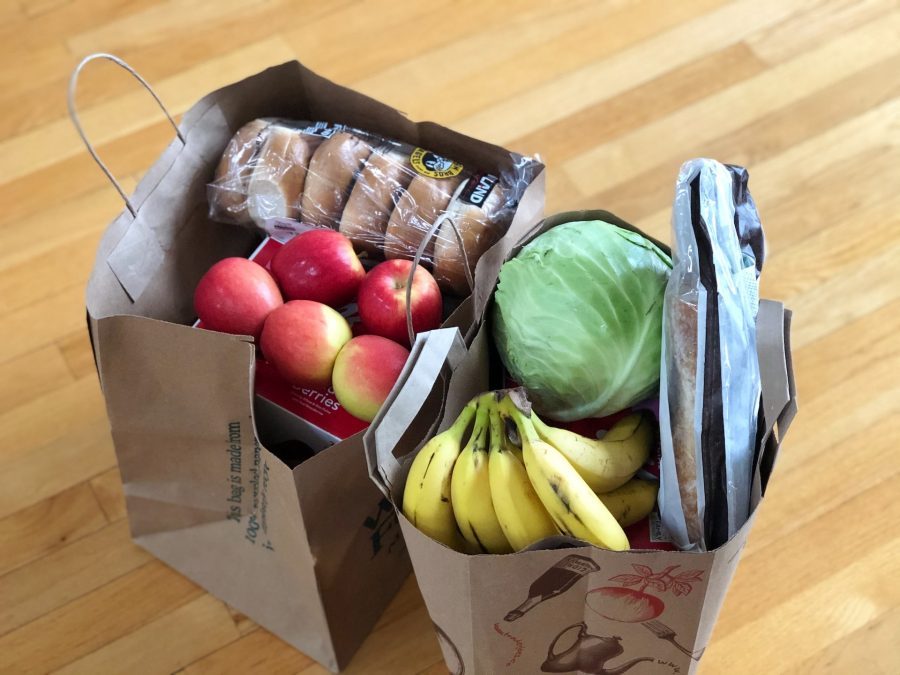On Saturday, July 8, my mobility scooter and I entered a grocery store for the first time in three years. As a high-risk, disabled senior, I’ve had to depend on grocery delivery throughout the pandemic. As finances tighten, that medical safety is no longer an option. In my N95 mask at No Frills, I grabbed seven items for $36.21. Then it hit me. I expected to pay twice that because that’s what I’ve been paying online.
I went on my delivery service, Instacart, and totalled the amount I’d pay for the same seven items to be delivered from the same No Frills store. It came to twice the cost.
Then I checked the total cost of getting the exact same seven items delivered from stores not advertised as discount stores. From Loblaws and Fortinos, it cost three times as much.
Want to read more from Broadview? Consider subscribing to one of our newsletters.
In every delivery, the higher cost came roughly equally from two sources: fees/tip and higher item prices. For the exact same size and brand, delivery prices rose wildly from store to store. No Frills advertises “in-store prices” on Instacart, but only two of my seven items were the in-store price.
To check that this wasn’t a fluke, on Monday, July 17, I purchased nine staples in person at No Frills: margarine, milk, eggs, oranges, spinach, mushrooms, onions, cucumber and deli meat, then made identical orders on Instacart.
My in-person No Frills bill was $36.30. On Instacart for No Frills, Loblaws and Fortinos, the total delivered cost was two to two-and-a half times as much. Yet again, only four No Frills items were the same price in person as online. Yet again, the higher costs resulted equally from fees/tip and higher prices. I’ve had to pay these sorts of prices every week for the last three years.
Who do we blame?
There is no transparency as to how profits are split between stores and delivery services. What is clear is that the Weston family owns No Frills, Loblaws and Fortinos. They have some explaining to do about why they charge vastly different prices for the exact same items. Their claim to offer “in-store prices” on Instacart smells like ripe blue cheese.
Other delivery services may be less expensive. They might offer in-store prices on all items. If I could still drive, if I could afford the single delivery fees of those companies that charge for each delivery and/or additional membership fees, I’d do a full comparison between in-person shopping and multiple delivery services at different points in time. I do hope someone does this full exposé.
Unfortunately, that is beyond this disabled reporter. No Frills is the only store in range of my scooter and when winter comes, I’ll be forced to return to grocery delivery.
That’s the real crime here. I’m held hostage. Many disabled people and seniors can’t make multiple bargain-hopping trips. We can’t travel to independent grocery stores. Grocery delivery isn’t an occasional luxury. It’s our only choice.
We must rely on large chains and delivery companies hoping they have the social responsibility to feed us fairly. They don’t. In my examination of costs paid, the most vulnerable who can least afford it are being charged up to $85.01 for the same seven items non-disabled shoppers get for $36.21. The disability community refers to this as a Disability Tax.
More on Broadview:
- This Montreal musician is creating digital instruments for people with disabilities
- New immigrants could be hit harder by Meta cutting off access to Canadian news
- Don’t think you can afford art? Montreal collective The MRKT is changing that
There are no seniors’ discounts on groceries, my yearly $99.00 Instacart membership, or delivery fees. Instead, we are expected to subsidize companies making huge profits by tipping their delivery workers who they pay only a little above minimum wage.
What would it look like if good health was valued over profits? If the public’s right to eat healthy food was as valued as our right to excellent public education and healthcare?
We’d see all grocery stores and delivery services nationalized and unionized to provide at-cost prices for all and delivery services subsidized or fully covered for disabled people and seniors. We’d enjoy excellent nutrition and living-wage working conditions for us all.
Of course, it isn’t just seniors and disabled people who have to depend on grocery delivery. Many did so throughout the pandemic and we may need that safer option again. The wider message of my research is clear to me: if you have to feed your family on grocery delivery, you can give your children only half the food they would have if you could shop in person. This kind of greed hurts us all.
***
Dorothy Ellen Palmer is based in Burlington, Ont.
Thanks for reading!
Did you know Broadview is the only media organization in Canada dedicated to covering progressive Christian news and views?
We are also a registered charity and rely on subscriptions and tax-deductible donations to keep our trustworthy, independent and award-winning journalism alive.
Please help us continue to share stories that open minds, inspire meaningful action and foster a world of compassion. Don’t wait. We can’t do it without you.
Here are some ways you can support us:
Thank you so very much for your generous support! Together, we can make a difference.
Jocelyn Bell, Editor/Publisher, CEO and Trisha Elliott, Executive Director


Comments
Debra Leedham says:
As a disabled person in a wheelchair, I resonated with this article. Living in a small town, I depend on having my groceries delivered directly from the store in town. Although I need to cooperate with the system they set up for deliveries, they will bring me the groceries I ordered [or substitute if necessary]. This means that I never get to choose my own items, and frequently have to monitor the delivery [because the store defends incompetence]. Because I can never be there in person, I need to depend upon the sale flyer [and this store does not always receive the items in the flyer]. I realize I have made a trade-off in order to get my groceries delivered. I have to accept what happens regardless of the cost [and I do not pay a high delivery fee in this small town].